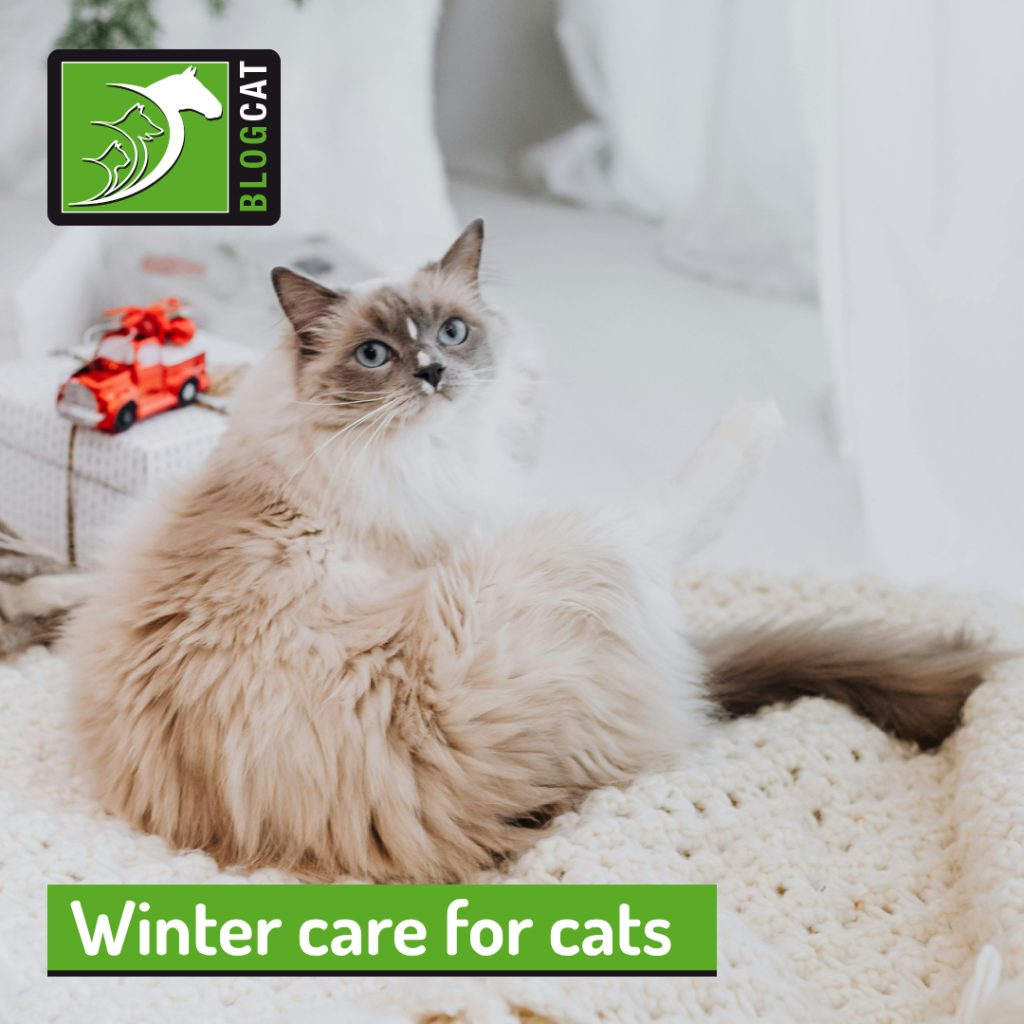Winter is now definitely with us! With the colder days and dreary weather, it’s time to take a close look at our feline friends and the ways the lower temperatures might impact them at this time.
Cats are better suited to warmer days than cold, which means you need to remember a couple of things to ensure that your pets will be comfortable during the winter months.
Read our blog for the best tips on how to make your home into a cosy cat corner!
Will my cat feel the cold?
Just like us, cats can feel the cold and will be bothered by low temperatures. In fact, as warm-weather animals, our domestic felines are more at ease during a warm day than during the dreary season.
Barring some exceptions, most breeds don’t have thick coats and they take a long time to dry if they have been out in the rain or the snow, putting them at a significant risk of hypothermia and frostbite. This means that it’s best to provide a warm, dry place for your cats to rest that is always available to them.
This is especially important for pets that spend a lot of time outdoors, as they risk being stuck in dangerously low temperatures without shelter or losing access to their water supply if it freezes.
To help with this, always make sure that cat flaps are not blocked by snow, that there is a comfortable resting place waiting for him or her and that fresh, non-frozen water is always available.
My cat doesn’t go outside, do I need to do anything for him or her?
Many owners prefer to keep their furry friends exclusively indoors, with access to a fenced-in ‘catio’ or going out for walks with a harness. Even though they are less exposed to the elements, indoor-only cats can also suffer from the cold!
Help your cat spend a comfortable winter by:
- Limiting the time that they have to spend in the rain, wind or snow;
- If you go out with him or her, always make sure to dry off coat and paws;
- Checking if his or her microchip is up to date, in case they escape and get lost;
- Moving pet beds away from draughty rooms and providing warm covers or clothes, in particular if your cat is elderly or has thin fur.
I’ve heard about antifreeze, is it dangerous for my cat?
As the temperatures drop, it’s also critical to ensure vehicles have the right concentration of antifreeze in the radiator so you can avoid any mechanical failures.
Unfortunately, this might put dangerous fluids in contact with curious pets, either via spilt bottles or due to pipe leaks. Antifreeze is severely toxic, but it does not taste bad, which might tempt furry friends to try to drink it or accidentally ingest it via grooming.
Even small amounts of antifreeze can cause fatal kidney problems if not treated in time, so if you think your cat might have ingested it, talk to your veterinarian as soon as you can!
In summary, don’t forget to:
- Make sure that outdoor cats have a safe place to rest when the temperatures drop as well as permanent access to fresh, non-frozen water;
- Increase the comfort of your indoor-only cats with a warm bed away from cold draughts;
- Keep an eye on any antifreeze spills and talk to your vet immediately if your pet might have ingested any.
Would you like to know more about cats? Check our Feline Courses:
Feline courses

